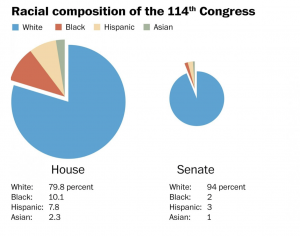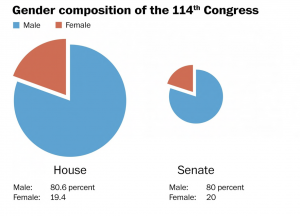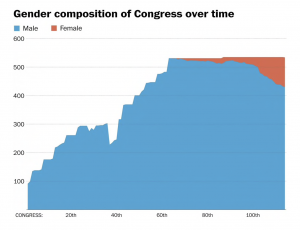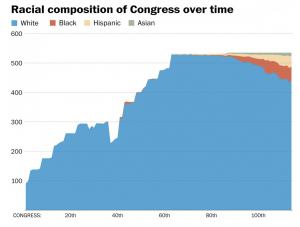Is Congress a Violation of the Norm of Political Equality?
When looking at any segment of our government, we can see that there exists a definite socio-economic inequality among our government leaders and the average United States citizen. In the Congressional branch of our United States government, we must ask ourselves, do the members of Congress carry out their representative responsibilities in a way that can be considered democratic?
The answer to this question is not straight forward and cannot be stated without some sort of an opinion. In congress, there exist two types of representatives, delegates and trustees. Delegates are often representatives who attempt to ‘mirror the views of his or her constituents’ while trustees ‘trust his or her own judgement to do what best for constituents, independently of what people might actually want” (Greenberg and Page). However, though delegates are more ‘for the people’ than trustees, they still are representative to particular classes due to the homogenous nature of Congressional representatives.
Members of Congress are traditionally from a wealthy, white, male background. Although over the past few decades this tradition has modernized a bit, our nation still is trapped within the bounds of a very homogenous congressional representation from gender, to race, to income, and even to sexual orientation. For example, African Americans make up only 11% of the body of Congress, even though they make up about 18% of the United States’ population. When looking at another minority, the United States ranks only 72nd on the worlds list of women in national legislatures (Greenberg and Page). Both of the preceding facts help to prove that our Congress is not diversified enough to claim equal political representation for all. For evidence, take a look at the graphs below taken from ‘The Washington Post.”
Personally, I believe that with a homogenous Congress, our country is failing to represent fairly all of its citizens. Although the Democratic party, for example, is more diverse and works for the greater good of all, it still lacks great representation for many minorities within Congress.
For example, “many Americans who are not well represented- especially women, minorities, and low-income groups—believe that their interests would be heard if their numbers were substantially increased in Congress” (Greenberg and Page). The greatest issue with the lack of diversification in Congress is that our democracy is not holding up the ideals of political equality, which is one of the main elements of our American democracy.
According to Philip Bump of ‘The Washington Post,’ “The 114th Congress [was] one of the most diverse in American history, comprised of nearly 20 percent women and just over 17 percent of which is non-white. Which means, of course, that four out of five members of Congress are white and four out of five are men. Ergo, given the name of a member of Congress you can probably guess his or her gender and race” (Bump). Though slightly sarcastic and mocking at the lack of diversity within Congress, we must also read this and understand that there is a change that is happening within Congress, and although very slow, Congress is beginning to diversify. The problem is, however, will this trend stick? How can we claim we are truly a democratic nation if our nation’s minorities are not properly represented within one of the most important branches of our government? Do you believe that this diversification trend will continue, or do you see Congress’s diversity or homogeneity as a direct result of who leads the House and the Senate?
Works Cited:
Bump, Philip. “The New Congress Is 80 Percent White, 80 Percent Male and 92 Percent Christian.” The Washington Post, WP Company, 5 Jan. 2015, www.washingtonpost.com/news/the-fix/wp/2015/01/05/the-new-congress-is-80-percent-white-80-percent-male-and-92-percent-christian/?utm_term=.f11795bcc5fd.
Greenberg, Edward S., and Benjamin I. Page. The Struggle for Democracy. Pearson, 2018.



